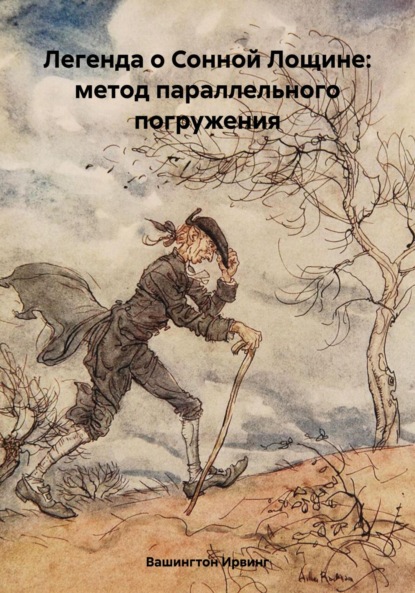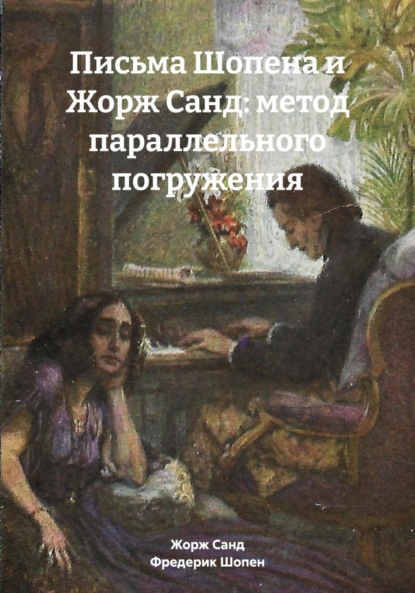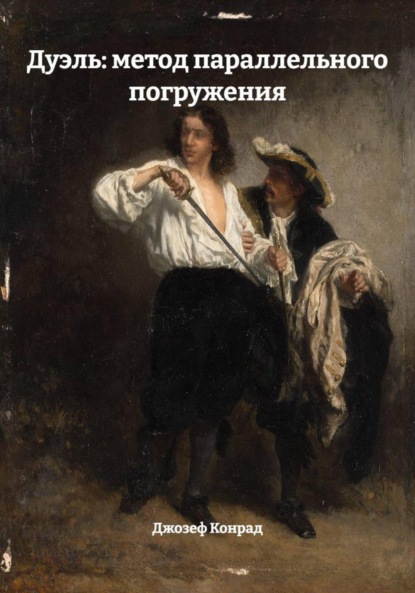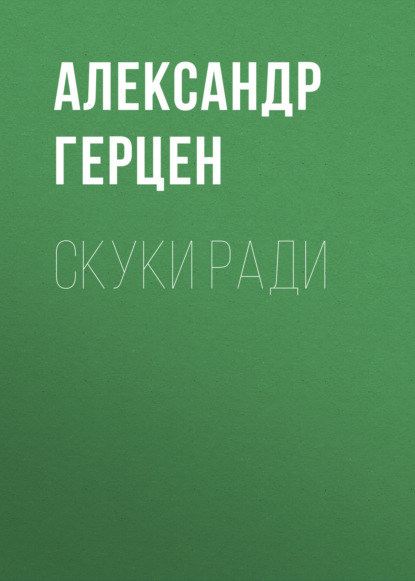Гордость и предубеждение: метод параллельного погружения
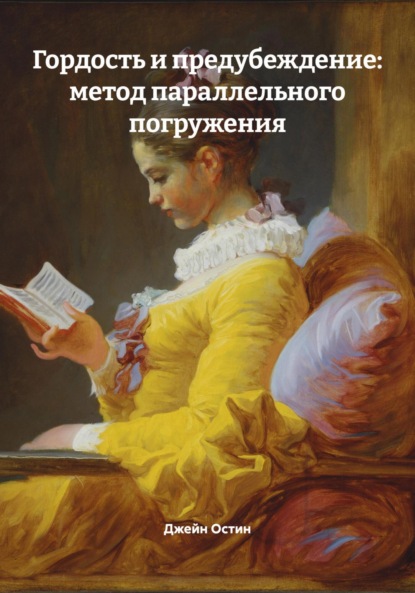
- -
- 100%
- +
“Indeed!”
“Yes—the late Mr. Darcy bequeathed me the next presentation of the best living in his gift. He was my godfather, and excessively attached to me. I cannot do justice to his kindness. He meant to provide for me amply, and thought he had done it; but when the living fell, it was given elsewhere.”
“Good heavens!” cried Elizabeth; “but how could that be? How could his will be disregarded? Why did not you seek legal redress?”
“There was just such an informality in the terms of the bequest as to give me no hope from law. (В формулировках завещания была именно такая неточность, которая не оставляла мне надежды на защиту по закону; informality – неточность, формальный изъян, terms of the bequest – условия завещания, no hope from law – нет надежды через суд.) A man of honour could not have doubted the intention, (Человек чести не стал бы сомневаться в намерении; man of honour – человек чести, intention – намерение.) but Mr. Darcy chose to doubt it—or to treat it as a merely conditional recommendation, (но мистер Дарси предпочёл усомниться в нём – или расценить это всего лишь как условную рекомендацию; chose to doubt – предпочёл усомниться, merely – просто, conditional recommendation – необязательная рекомендация.) and to assert that I had forfeited all claim to it by extravagance, imprudence, in short, anything or nothing. (и заявил, что я утратил всякое право на неё из-за расточительности, неосмотрительности – словом, из-за чего угодно или вовсе без причины; to assert – утверждать, forfeit claim – лишиться права, extravagance – расточительность, imprudence – неосмотрительность, anything or nothing – всё что угодно или ничего.) Certain it is that the living became vacant two years ago, exactly as I was of an age to hold it, and that it was given to another man; (Бесспорно, приход стал вакантным два года назад, как раз когда я достиг возраста, позволяющего занять его, и должность была отдана другому; living became vacant – приход освободился, of an age to hold it – достиг нужного возраста, was given to another – передана другому.) and no less certain is it, that I cannot accuse myself of having really done anything to deserve to lose it. (И столь же несомненно, что я не могу винить себя в чём-то, что по-настоящему заслуживало бы такой утраты; accuse myself – винить себя, deserve to lose – заслужить потерю.) I have a warm unguarded temper, and I may perhaps have sometimes spoken my opinion of him, and to him, too freely. (У меня горячий, несдержанный характер, и, возможно, я порой слишком откровенно высказывался о нём – и даже ему самому; warm unguarded temper – вспыльчивый и откровенный нрав, too freely – слишком свободно, без оглядки.) I can recall nothing worse. (Хуже я припомнить не могу; recall – вспоминать.) But the fact is, that we are very different sort of men, and that he hates me.” (Но факт в том, что мы люди совершенно разного склада, и он меня ненавидит; different sort of men – разные по характеру люди, he hates me – он меня ненавидит.)
“There was just such an informality in the terms of the bequest as to give me no hope from law. A man of honour could not have doubted the intention, but Mr. Darcy chose to doubt it—or to treat it as a merely conditional recommendation, and to assert that I had forfeited all claim to it by extravagance, imprudence, in short, anything or nothing. Certain it is that the living became vacant two years ago, exactly as I was of an age to hold it, and that it was given to another man; and no less certain is it, that I cannot accuse myself of having really done anything to deserve to lose it. I have a warm unguarded temper, and I may perhaps have sometimes spoken my opinion of him, and to him, too freely. I can recall nothing worse. But the fact is, that we are very different sort of men, and that he hates me.”
“This is quite shocking! He deserves to be publicly disgraced.” («Это просто возмутительно! Он заслуживает того, чтобы быть публично опозоренным; quite shocking – совершенно возмутительно, deserves to be – заслуживает, чтобы…, publicly disgraced – публично опозорен.)
“Some time or other he will be—but it shall not be by me. («Когда-нибудь он и будет – но не по моей вине; some time or other – рано или поздно, shall not be by me – не по моей инициативе.) Till I can forget his father, I can never defy or expose him.” (Пока я не забуду его отца, я никогда не смогу бросить ему вызов или разоблачить его; till – пока не, defy – открыто противостоять, expose – разоблачить.)
Elizabeth honoured him for such feelings, and thought him handsomer than ever as he expressed them. (Элизабет прониклась к нему уважением за такие чувства и подумала, что он выглядел красивее, чем когда-либо, когда говорил это; honoured him – прониклась уважением, handsomer than ever – красивее, чем когда-либо, as he expressed them – когда он их выражал.)
“This is quite shocking! He deserves to be publicly disgraced.”
“Some time or other he will be—but it shall not be by me. Till I can forget his father, I can never defy or expose him.”
Elizabeth honoured him for such feelings, and thought him handsomer than ever as he expressed them.
“But what,” said she, after a pause, “can have been his motive? what can have induced him to behave so cruelly?” («Но что же, – сказала она после паузы, – могло быть его мотивом? Что могло побудить его вести себя так жестоко?»; motive – побуждение, причина, induce – побудить, склонить, behave cruelly – вести себя жестоко.)
“A thorough, determined dislike of me—a dislike which I cannot but attribute in some measure to jealousy. (Глубокая, решительная неприязнь ко мне – неприязнь, которую я не могу не приписать в какой-то степени зависти; thorough – полная, абсолютная, determined dislike – решительная неприязнь, cannot but attribute – не могу не приписать, in some measure – в некоторой степени, jealousy – зависть.) Had the late Mr. Darcy liked me less, his son might have borne with me better; (Если бы покойный мистер Дарси любил меня меньше, его сын, возможно, терпел бы меня лучше; had… liked me less – если бы… любил меня меньше, borne with me – терпел меня, мирился со мной.) but his father’s uncommon attachment to me irritated him, I believe, very early in life. (но необычная привязанность отца ко мне, как я думаю, начала раздражать его ещё в ранние годы; uncommon attachment – необычная, сильная привязанность, irritated – раздражала, early in life – с раннего возраста.) He had not a temper to bear the sort of competition in which we stood—the sort of preference which was often given me.” (У него не тот характер, чтобы выносить то соперничество, в котором мы оказались – и то предпочтение, которое часто отдавалось мне; not a temper to bear – не такой характер, чтобы выдержать, competition – соперничество, preference – предпочтение, was given – оказывалось.)
“But what,” said she, after a pause, “can have been his motive? what can have induced him to behave so cruelly?”
“A thorough, determined dislike of me—a dislike which I cannot but attribute in some measure to jealousy. Had the late Mr. Darcy liked me less, his son might have borne with me better; but his father’s uncommon attachment to me irritated him, I believe, very early in life. He had not a temper to bear the sort of competition in which we stood—the sort of preference which was often given me.”
“I had not thought Mr. Darcy so bad as this—though I have never liked him, I had not thought so very ill of him— («Я не думала, что мистер Дарси настолько плох – хотя он мне никогда не нравился, я не думала о нём так уж плохо; had not thought… so bad – не считала таким уж плохим, so very ill of him – настолько плохо о нём.) I had supposed him to be despising his fellow-creatures in general, (Я полагала, что он просто презирает людей в целом; despising – презирающий, fellow-creatures – окружающие, ближние.) but did not suspect him of descending to such malicious revenge, such injustice, such inhumanity as this!” (но не подозревала, что он способен опуститься до такой злонамеренной мести, такой несправедливости, такой жестокости!; suspect of – подозревать в, descending to – опускаться до, malicious revenge – злобная месть, injustice – несправедливость, inhumanity – бесчеловечность.)
After a few minutes’ reflection, however, she continued, (Однако, поразмыслив несколько минут, она продолжила; reflection – размышление, she continued – она продолжила.) “I do remember his boasting one day, at Netherfield, of the implacability of his resentments, of his having an unforgiving temper. (Я действительно помню, как он однажды в Нетерфилде хвастался своей злопамятностью, своей неспособностью прощать; boasting – хвастовство, implacability of resentments – неумолимость обид, unforgiving temper – непримиримый характер.) His disposition must be dreadful.” (Его нрав, должно быть, ужасен; disposition – характер, склад ума, dreadful – ужасный.)
“I had not thought Mr. Darcy so bad as this—though I have never liked him, I had not thought so very ill of him—I had supposed him to be despising his fellow-creatures in general, but did not suspect him of descending to such malicious revenge, such injustice, such inhumanity as this!”
After a few minutes’ reflection, however, she continued, “I do remember his boasting one day, at Netherfield, of the implacability of his resentments, of his having an unforgiving temper. His disposition must be dreadful.”
“I will not trust myself on the subject,” replied Wickham; («Я не доверяю себе в этом вопросе, – ответил Уикхэм; trust myself – полагаться на себя, on the subject – по этому вопросу.) “I can hardly be just to him.” (Я едва ли могу быть справедлив к нему; hardly – едва ли, be just – быть справедливым.)
Elizabeth was again deep in thought, (Элизабет снова глубоко задумалась; deep in thought – погружённая в размышления.) and after a time exclaimed, (и спустя некоторое время воскликнула; after a time – спустя время, exclaimed – воскликнула.) “To treat in such a manner the godson, the friend, the favourite of his father!” («Так обращаться с крестником, другом, любимцем его отца!»; to treat in such a manner – обращаться таким образом, godson – крестник, favourite – любимец.) She could have added, (Она могла бы добавить; could have added – могла бы сказать.) “A young man, too, like you, («И к тому же с таким молодым человеком, как вы; too – также, like you – вроде вас.) whose very countenance may vouch for your being amiable.” (чьё само лицо может служить подтверждением вашей доброжелательности; countenance – выражение лица, vouch for – служить доказательством, amiable – дружелюбный.) But she contented herself with— (Но она ограничилась словами —; contented herself with – удовлетворилась.) “And one, too, who had probably been his own companion from childhood, («И к тому же с тем, кто, вероятно, был его товарищем с детства; companion from childhood – друг с детства.) connected together, as I think you said, in the closest manner.” (связанным, как вы, кажется, сказали, самым тесным образом; connected together – связанным, in the closest manner – самым близким образом.)
“I will not trust myself on the subject,” replied Wickham; “I can hardly be just to him.”
Elizabeth was again deep in thought, and after a time exclaimed, “To treat in such a manner the godson, the friend, the favourite of his father!” She could have added, “A young man, too, like you, whose very countenance may vouch for your being amiable.” But she contented herself with—“And one, too, who had probably been his own companion from childhood, connected together, as I think you said, in the closest manner.”
“We were born in the same parish, within the same park; («Мы родились в одном приходе, в пределах одного поместья; parish – приход, park – в значении поместья.) the greatest part of our youth was passed together: (большую часть юности мы провели вместе; the greatest part – большая часть, was passed – была проведена.) inmates of the same house, sharing the same amusements, objects of the same parental care. (жили в одном доме, разделяли одни и те же развлечения, были объектами одинаковой заботы со стороны его отца; inmates – соседи по дому, amusements – развлечения, parental care – забота отцовская.) My father began life in the profession which your uncle, Mr. Philips, appears to do so much credit to; (Мой отец начал свою карьеру в той профессии, которой, похоже, с таким достоинством служит ваш дядя, мистер Филипс; to do credit to – делать честь, служить с достоинством.) but he gave up everything to be of use to the late Mr. Darcy, (но он отказался от всего, чтобы быть полезным покойному мистеру Дарси; gave up everything – отказался от всего, to be of use – быть полезным.) and devoted all his time to the care of the Pemberley property. (и посвятил всё своё время заботе об имении Пемберли; devoted – посвятил, care – забота, управление.)
“We were born in the same parish, within the same park; the greatest part of our youth was passed together: inmates of the same house, sharing the same amusements, objects of the same parental care. My father began life in the profession which your uncle, Mr. Philips, appears to do so much credit to; but he gave up everything to be of use to the late Mr. Darcy, and devoted all his time to the care of the Pemberley property.
He was most highly esteemed by Mr. Darcy, a most intimate, confidential friend. (Он пользовался величайшим уважением у мистера Дарси и был его близким, доверенным другом; highly esteemed – очень уважаемый, intimate – близкий, confidential – доверенный.) Mr. Darcy often acknowledged himself to be under the greatest obligations to my father’s active superintendence; (Мистер Дарси часто признавал себя в глубочайшей степени обязанным за деятельное попечение моего отца; acknowledged himself to be under obligations – признавал себя обязанным, active superintendence – деятельное руководство, наблюдение.) and when, immediately before my father’s death, Mr. Darcy gave him a voluntary promise of providing for me, (и когда прямо перед смертью моего отца мистер Дарси дал ему добровольное обещание позаботиться обо мне; immediately before – незадолго до, voluntary promise – добровольное обещание, providing for – обеспечить, позаботиться.) I am convinced that he felt it to be as much a debt of gratitude to him as of affection to myself.” (я убеждён, что он воспринимал это обещание как выражение и долга благодарности отцу, и привязанности ко мне; debt of gratitude – долг благодарности, affection – привязанность.)
He was most highly esteemed by Mr. Darcy, a most intimate, confidential friend. Mr. Darcy often acknowledged himself to be under the greatest obligations to my father’s active superintendence; and when, immediately before my father’s death, Mr. Darcy gave him a voluntary promise of providing for me, I am convinced that he felt it to be as much a debt of gratitude to him as of affection to myself.”
“How strange!” cried Elizabeth. («Как странно!» – воскликнула Элизабет; how strange – как странно, удивительно.) “How abominable! («Как отвратительно!»; abominable – отвратительный, мерзкий.) I wonder that the very pride of this Mr. Darcy has not made him just to you. (Удивительно, что даже гордость самого мистера Дарси не заставила его быть справедливым к вам; I wonder – мне удивительно, very pride – сама гордость, has not made him just – не сделала его справедливым.) If from no better motive, that he should not have been too proud to be dishonest,— (Хотя бы из соображений гордости – ведь он не должен был быть настолько гордым, чтобы поступить бесчестно; no better motive – не из более высокой причины, too proud to be dishonest – слишком гордый, чтобы быть нечестным.) for dishonesty I must call it.” (ибо я обязана назвать это нечестностью; dishonesty – нечестность, I must call it – я вынуждена так это назвать.)
“How strange!” cried Elizabeth. “How abominable! I wonder that the very pride of this Mr. Darcy has not made him just to you. If from no better motive, that he should not have been too proud to be dishonest,—for dishonesty I must call it.”
“It is wonderful,” replied Wickham; («Это действительно удивительно», – ответил Уикхэм; wonderful – удивительно, поразительно.) “for almost all his actions may be traced to pride; (ведь почти все его поступки можно отследить до гордости; may be traced to – можно свести к, проследить до, pride – гордость.) and pride has often been his best friend. (и гордость часто была его лучшим другом; best friend – в переносном смысле: главной движущей силой, защитой.) It has connected him nearer with virtue than any other feeling. (Она сближала его с добродетелью сильнее, чем любое другое чувство; connected with virtue – связывала с добродетелью, virtue – добродетель.) But we are none of us consistent; (Но мы все не всегда последовательны; none of us consistent – никто из нас не бывает полностью последовательным.) and in his behaviour to me there were stronger impulses even than pride.” (а в его отношении ко мне действовали порывы даже сильнее гордости; stronger impulses – более сильные побуждения, behaviour – поведение.)
“Can such abominable pride as his have ever done him good?” («Могла ли такая отвратительная гордость, как у него, хоть когда-нибудь пойти ему на пользу?»; abominable – отвратительная, done him good – принести ему пользу.)
“It is wonderful,” replied Wickham; “for almost all his actions may be traced to pride; and pride has often been his best friend. It has connected him nearer with virtue than any other feeling. But we are none of us consistent; and in his behaviour to me there were stronger impulses even than pride.”
“Can such abominable pride as his have ever done him good?”
“Yes; it has often led him to be liberal and generous; («Да, она часто побуждала его быть великодушным и щедрым; led him to be – побуждала его быть, liberal and generous – великодушным и щедрым.) to give his money freely, to display hospitality, to assist his tenants, and relieve the poor. (свободно раздавать деньги, проявлять гостеприимство, помогать своим арендаторам и поддерживать бедных; give money freely – щедро тратить деньги, display hospitality – проявлять гостеприимство, assist tenants – помогать арендаторам, relieve the poor – оказывать помощь бедным.) Family pride, and filial pride, for he is very proud of what his father was, have done this. (Семейная гордость и сыновняя гордость – ведь он очень гордится тем, кем был его отец – и стали причиной этого; family pride – родовая гордость, filial pride – сыновняя гордость, have done this – привели к этому.) Not to appear to disgrace his family, to degenerate from the popular qualities, or lose the influence of the Pemberley House, is a powerful motive. (Не показаться позором для своей семьи, не опуститься ниже уважаемых качеств рода и не утратить влияние дома Пемберли – это мощный стимул; disgrace his family – опозорить семью, degenerate from – выродиться, отклониться от, popular qualities – признанные достоинства, influence – влияние, powerful motive – сильный побудительный мотив.) He has also brotherly pride, which, with some brotherly affection, makes him a very kind and careful guardian of his sister; (У него есть и братская гордость, которая вместе с братской привязанностью делает его очень добрым и заботливым опекуном своей сестры; brotherly pride – братская гордость, brotherly affection – братская привязанность, kind and careful guardian – добрый и внимательный опекун.) and you will hear him generally cried up as the most attentive and best of brothers.” (и вы обычно услышите, как его превозносят как самого заботливого и лучшего из братьев; cried up – восхваляют, превозносят, attentive – внимательный, заботливый.)
“Yes; it has often led him to be liberal and generous; to give his money freely, to display hospitality, to assist his tenants, and relieve the poor. Family pride, and filial pride, for he is very proud of what his father was, have done this. Not to appear to disgrace his family, to degenerate from the popular qualities, or lose the influence of the Pemberley House, is a powerful motive. He has also brotherly pride, which, with some brotherly affection, makes him a very kind and careful guardian of his sister; and you will hear him generally cried up as the most attentive and best of brothers.”
“What sort of a girl is Miss Darcy?” («Что собой представляет мисс Дарси? Какая она девушка?»; what sort of – что за, какого рода, girl – девушка.)
He shook his head. “I wish I could call her amiable. (Он покачал головой. «Жаль, что я не могу назвать её милой; shook his head – покачал головой, wish I could – хотел бы, но не могу, amiable – дружелюбной, милой.) It gives me pain to speak ill of a Darcy; (Мне больно говорить плохо о Дарси; gives me pain – причиняет боль, speak ill of – плохо отзываться о.) but she is too much like her brother,—very, very proud. (но она слишком похожа на своего брата – очень, очень гордая; too much like – слишком похожа, proud – гордая, надменная.) As a child, she was affectionate and pleasing, and extremely fond of me; (В детстве она была ласковой и приятной, и была чрезвычайно ко мне привязана; affectionate – ласковая, pleasing – приятная, fond of me – нежно любила меня.) and I have devoted hours and hours to her amusement. (И я посвящал часы и часы её развлечению; devoted hours – тратил много времени, amusement – развлечения, радость.) But she is nothing to me now. (Но теперь она для меня никто; nothing to me – мне она больше не дорога, ничего не значит.) She is a handsome girl, about fifteen or sixteen, (Она хорошенькая девушка, около пятнадцати или шестнадцати лет; handsome girl – привлекательная девушка, about fifteen or sixteen – примерно 15 или 16 лет.) and, I understand, highly accomplished. (и, насколько я знаю, очень хорошо воспитана и образована; highly accomplished – прекрасно воспитанная, с разносторонними талантами.) Since her father’s death her home has been London, where a lady lives with her, and superintends her education.” (С тех пор как умер её отец, её дом – в Лондоне, где с ней живёт одна дама и наблюдает за её воспитанием; superintends – присматривает, руководит, education – воспитание, обучение.)


